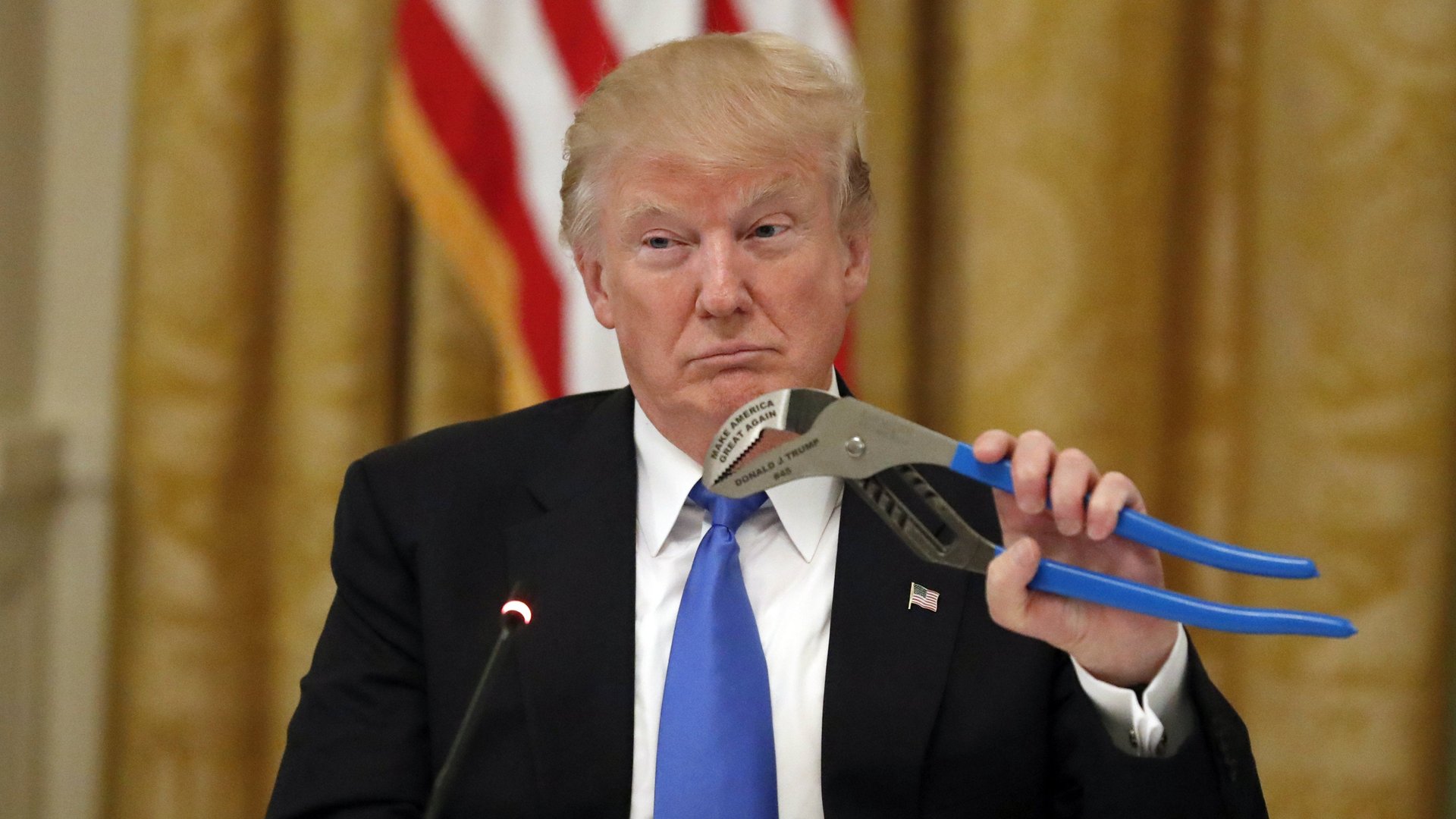Trump’s inability to make policy has prompted the IMF to cut its economic forecasts for the US
The US used to be the engine of international economic growth—where the US went, the world economy followed. Now, the tables are turning. The International Monetary Fund has cut its projections for US economic growth but not for the rest of the world. Instead the global economy is being propelled forward by the euro zone, China, Japan, and Canada.


The US used to be the engine of international economic growth—where the US went, the world economy followed. Now, the tables are turning. The International Monetary Fund has cut its projections for US economic growth but not for the rest of the world. Instead the global economy is being propelled forward by the euro zone, China, Japan, and Canada.
The IMF still forecasts the world economy to grow 3.5% this year and 3.6% in 2018, the same projection it made in April. However, a new report observes: “The unchanged global growth projections mask somewhat different contributions at the country level.” Most notably this refers to the US. The IMF now forecasts US GDP growth to be 2.1% this year, instead of the 2.3% forecast in April. GDP growth for 2018 has been revised to 2.1% from 2.5%.
These might sound like small changes, but in a $19 trillion economy this makes a difference. The main reason for the downgrade is the IMF’s assumption that the US government’s fiscal policy won’t be as growth-boosting as previously expected. In fact, some of the proposals for spending cuts in the Trump administration’s budget could make things worse and lower the GDP growth rate even further, the IMF report said.
Traders and small businesses had already lost faith in US president Donald Trump’s ability to pass major laws with a Republican-led Congress. The repeated failure to repeal and replace Obama’s health-care law has made it even more unlikely that tax reform will happen anytime soon. In any case, the IMF’s forecasts are far off from the Trump administration’s “MAGAnomics” plan of 3% annual growth.
While American leadership fades here, other countries have stepped into the void to keep the global economy on the same trajectory. Euro zone growth has been revised up for the next two years, with bumper 0.5 percentage-point increases in the 2017 forecasts for Italy and Spain. The biggest forecast increase was for Canada, which the IMF expects to grow 2.5% this year, up from the 1.9% it forecast in April. The US’s northern neighbor was the fastest-growing G7 economy at the start of the year. The IMF also has increased its forecasts for growth in China and Japan.
While the IMF is mostly positive on the outlook for the world as a whole, one of the key risks it warns of is a “protracted period of policy uncertainty.” As well as unpredictable future of US regulatory and fiscal policies, the IMF adds Brexit to list. The organization cut its project of UK economic growth for 2017 by 0.3 percentage point to 1.7%. Even without elections, political uncertainty on both sides of the Atlantic ocean could hit confidence, deter private investment, and weaken economic growth, the IMF said.